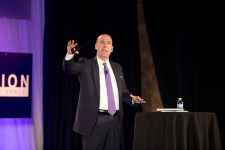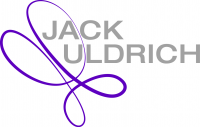Tackling Our Waste Problem Will Require Unlearning

MILWAUKEE, July 24, 2018 (Newswire.com) - Best-selling author and internationally recognized emerging trends expert Jack Uldrich shared his insights on the future of recycling with leaders at Quincy Recycle in Milwaukee yesterday.
In recent months, China has dramatically reduced the amount of recyclables it accepts from other countries, which further complicated the already formidable problem of what to do with all of the recyclable materials in need of processing in the United States and around the world.
Unlearning is a matter of becoming aware of your old habits and ways, understanding that they no longer serve you, and undertaking the sometimes uncomfortable process of developing new practices. It is the essence of future-proofing.
Jack Uldrich, Futurist & Founder of the School of Unlearning
Recycling rates, even in areas where recycling services are readily available, are still extremely low relative to how much could be recycled. According to the Environmental Protection Agency, more than 52% of the municipal solid waste in the United States, or 136 million tons, ends up in a landfill. Of the remainder, only 34.6% gets recycled, and the rest is either composted or used in energy recovery.
In his keynote yesterday, Uldrich outlined ten trends that are transforming the future of recycling and gave examples to illustrate the potential future of the industry. Those trends and technologies include artificial intelligence, the sharing economy, virtual and augmented reality, blockchain technology, nanotechnology, the internet of things, and advanced robotics.
Uldrich highlighted recent advancements in artificial intelligence that have allowed new machines to quickly and accurately sort materials collected from single-stream recycling collection bins. This is particularly valuable because a major issue in efficient recycling continues to be non-recyclable materials getting mixed in and contaminating the rest of the materials that could have been recycled. As these AI-powered sorting machines become more affordable and available, they could have a big impact on improving recycling rates and efficiency.
In addition to integrating new technology, Uldrich encouraged leaders in waste management and recycling to unlearn some processes and operations of the past that are no longer relevant due to new advancements and emerging trends. Helping others unlearn — or free themselves from obsolete knowledge and assumptions — is a specialty for Uldrich. As the founder of The School of Unlearning in 2004, he is internationally recognized as an expert in unlearning. Much of his work is based on the transformational principles of unlearning as a strategy to survive and thrive in an era of unparalleled change.
"The reality is, all organizations must unlearn old, obsolete knowledge and old ways of doing business before they can seize tomorrow’s opportunities," Uldrich said.
According to Uldrich, "Unlearning is a matter of becoming aware of your old habits and ways, understanding that they no longer serve you, and undertaking the sometimes uncomfortable process of developing new practices. It is the essence of future-proofing."
Uldrich speaks over 100 times each year to a wide variety of industry associations, businesses, and other organizations. He most often addresses leaders in health care, agriculture, education, energy, finance, retail, and manufacturing about the trends transforming their industries and how they can "future-proof" in today's fast-changing world.
To learn more about Uldrich, his presentations, or his speaking availability, please visit JackUldrich.com
Source: Jack Uldrich & The School of Unlearning
